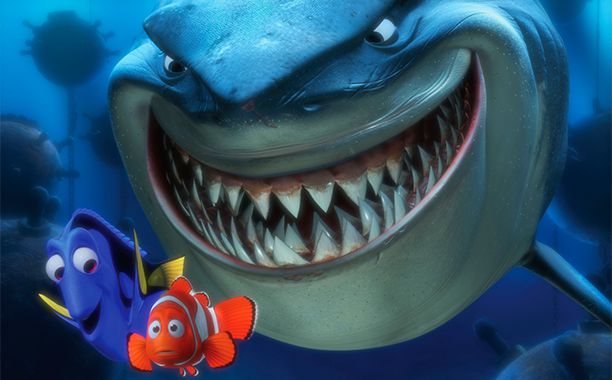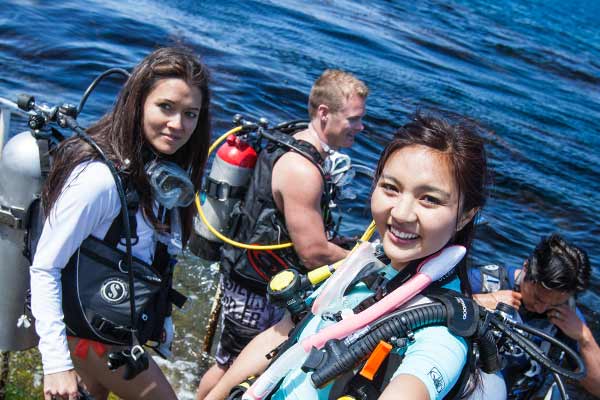Diving instructor is the best job in the world but it does come with some responsibility. Taking people scuba diving for the very first time does involve some risks. For instructors, it is important to be able to manage those risks.
In my IDC I try to do much more than getting my instructor candidates to pass the instructor exam (IE). I try to teach them to become confident instructors and risk management is an important part of that.
One of the subjects we discuss is environmental awareness. This is actually one of the points that you will be scored on during your teaching presentations on the IE. Many course directors mistakenly think this is about ‘taking care of the environment’. Like, you don’t sit on top of the coral to practice skills. It is, however much more about risk management, so ‘situational awareness’ would be a better term.
What is situational awareness?
In risk management, situational awareness is the perception of your surroundings, understanding it, and using it to predict the outcome of your actions.
A very simple example: When you ask your student to practice hovering and there is a mild current, he or she will probably float away from you and the rest of the students. You’ve probably already come up with a few solutions. Hold on to a line, have the entire group hover together, or choose a different location to practice the skill. Because your ‘situational awareness’ helped you to predict what would happen, you were able to avoid the problem or come up with a solution.
Limited brainpower
All humans – even dive instructors, have limited brain power. If you need 80% of your brain power to accomplish a task, there is only 20% left for situational awareness. When you are driving your car and somebody honks at you, you will probably go “Did you not see I had my indicator light on, you $%@! moron!!”
No. He did not. Because he needed all his brainpower to drive his car, find directions, and play with his phone. He did not have enough ‘brain’ left for situational awareness. He probably had very little brainpower to begin with but that’s a different story.
When you are doing something for the first time or when you are doing too many things at once, your situational awareness will be limited.
This famous example shows how limited brainpower affects situational awareness:
Stress
Stress also greatly reduces situational awareness. So, when you are stressed, the ‘perception of your surroundings and the ability to avoid problems or come up with a solution’ is greatly reduced. On one of my dives, a diver’s mouthpiece came off his reg. He kept trying to put it back on. Without success. Luckily, I could provide him with my alternate air source before he started to turn blue.
Stress caused him to focus on solving his problem. So much so that he did not realize that there was an easy solution nearby. Also, grabbing his own octopus had not occurred to him.
Stress reduces situational awareness. Causing a diver to miss an easy solution to a problem. The stress level increases and situational awareness is further reduced. Eventually leading to a panic.
Why is it important to student divers?
Student divers need all their brainpower to practice skills and basically ‘stay alive’ on their first dives. So, their situational awareness is very limited. Once they become more confident in the basic skills, their situational awareness grows. That’s why repetition is an important part of the system for PADI and other educators.
Important skills like regulator recovery, for instance, should be practiced so that a student can build ‘muscle memory’ and can almost do it on autopilot.

On their first dive, students will rely on you to make sure they don’t wander too deep and to check their air. On the following dives, you should ask your student to tell you their remaining air supply without checking their gauges. This may sound weird but it teaches your students to be aware of their air supply themselves, not only when you ask them.
Knowing how deep you are, and how much air you have remaining is also situational awareness. Question: Do you ever ask your students to tell you how deep they are? No-decompression time remaining?
Why is it important to dive instructors?
As a dive instructor, you are constantly working to avoid problems and to quickly solve issues for your student divers before they become a problem. This means that you should constantly be aware of your environment and predict what issues may occur. Like I said before: even dive instructors have limited brainpower. If you become more confident in your basic tasks, you have more brainpower left for situational awareness. In a way the PADI standards help you because you need to think less about planning your dives, and what skills to teach, etc.
As you have learned (or should have learned) in your Divemaster course, you should plan your dive and dive your plan. You should also think ahead and make a plan for potential problems that may occur. Visualize what could happen (unexpected currents, student using their air quicker than expected), and think of a possible solution. This not only makes it easier to solve problems when they occur but also makes you more aware of possible issues and helps to avoid them.
How to improve situational awareness
Just knowing the term ‘situational awareness’ and understanding what it means will go a long way and after reading this post you can probably think of a few ways to improve your own situational awareness.
- Dive with your head up and pay attention to your surroundings. Think ahead and predict what effect (changes in) your surroundings can have on your dive.
- Plan your dive and visualize potential problems and solutions.
- Practice general skills so that you can ‘do it on auto-pilot’. Not only general diving skills but also ‘teaching-skills’ and ‘rescue-skills’.
- Build routines like setting your compass before every dive and checking your (customers) air at regular intervals.
- Avoid task loading.
- Try to realize when you are focussing on one problem and slow down if you think you are losing situational awareness (is that customer still there??).
- Go fun diving and gain experience in different locations and diving conditions.
- Share your experiences with other instructors and discuss problems and solutions.
- Don’t assume you are ‘God’s gift to the diving industry’. Keeping an open mind and willingness to learn from others is what makes you a good instructor.



